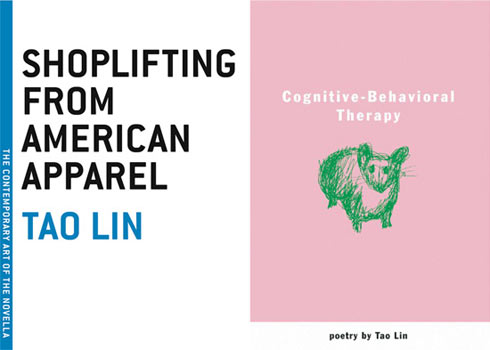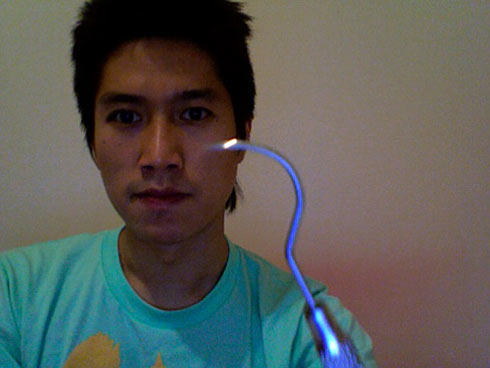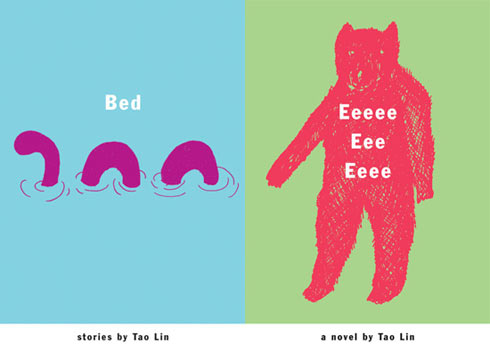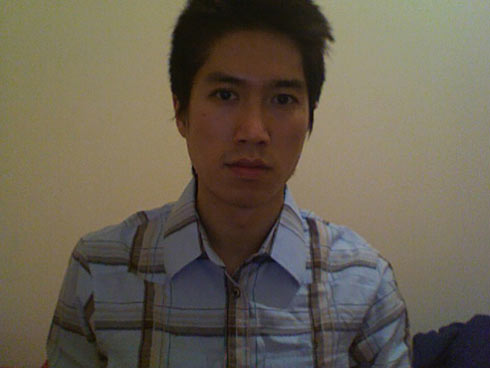Ubiquitous Underground




 Text: Kat Hartmann Images: Tao Lin
Text: Kat Hartmann Images: Tao Lin
Imagine this… Learning about the work of a young author by word of mouth. Yes, that increasingly redundant method of conveying information. Literary blogs, online publications, forwarded emails and press releases need not apply: said information came from one’s lips to another’s ears. Admittedly, the mouth belongs to none other than the aforementioned author’s publisher, Melville Houses’ Dennis Loy Johnson and the ears were mine, wide open at this year’s Melbourne Writer’s Festival. Also, the words were regarding the writer’s savvy online audience engagement so we’re not really talking casual conversation fodder here, but split hairs are not known for their longevity, nor their propensity for joy bringing, so for the sake of continuity, let’s move on.
The internet savvy, Brooklyn-based author in question, Tao Lin is a worthy conversation piece. During his 26 years of existence he has managed to rack up an impressive list of achievements and accolades. He’s penned two books – the second of which, the 55,000-word Richard Yates, is slated for release in 2010 – e-books and various works of poetry. His words have adorned the pages of Vice and Noon magazines. Lin also founded and is editor of Muumuu House – yes, like the dress – the publishers of all things words.
Not happy to sit on his I-just-wrote-a-novel-what-have-you-done-lately laurels, Lin instigated ingenious promotional campaigns in the lead up to publication of both his novels. The first, the ‘Britney Spears’ campaign is covered in more detail below. The second involved him selling six shares in Richard Yates, at $2000 a pop. The shares reportedly accredited holders with 10% of the book’s future royalties. Needless to say the UK and US media picked up this obscure headline-making activity.
Lin is a journalists dream and a nightmare all in the one writer’s body. He’s ubiquitous underground. There is plenty of related word fodder; great publicity campaigns, high-profile fans, indie status, but it can be hard to remove the fact from the digital fallacies. Some people struggle to determine where his work begins and ends; he was once credited then discredited with being the creator of Hipster Runoff, the touted-then-titled “culturally relevant”, “blog worth blogging about”. Others can’t get enough of him and his literary and word-based works; Miranda July is partial to espousing words of praise when questioned about Lin’s writing – and sometimes, when not. As are journalists at The LA Times.
Lin is the JT Leroy of the latter part of this decade. That is, if Leroy hadn’t turned out to be the product of an elaborate, actor-involved, B.O.Box-requiring, Laura-Albert instigated literary ruse. His works are unique, they are edgy and increasingly relevant. As one of the biggest selling authors currently on Melville Houses’ books his loyal fan-base is expanding at a seemingly exponential rate, as is his notoriety. Culturally centric blog, Gothamist recently reported that fellow NYC powerhouse blog, Gawker was increasingly unimpressed by the author’s below out-lined ‘Britney Spears’ campaign. As you will discover below, Lin assures me this is not the case.
Kat Hartmann: Let’s start by talking about your soon-to-be-released sophomore novel, Richard Yates. Am I right in my assumption that it is connected to the infamous journalist and author of the same name?
Tao Lin: Yes, it is connected. He is mentioned in the novel three times, I think. But it isn’t about him.
KH: I see. A small connection… Why the title choice then? What is the novel about?
TL: It’s titled Richard Yates because:
1. I felt I wanted to title it in the same manner I might title an email that I didn’t know what to title, then just titled sort of non-sequiturly.
2. I felt I wanted to title it Richard Yates because it sort of makes the reader always be aware of Richard Yate’s life, as it is conveyed through the three times he is referenced in the novel, while reading about the two main characters (of Richard Yates, the novel) lives.
3. I think it will be interesting how people react to the title.
4. I like Richard Yates’ writing a lot and think that other people who like his writing will see his name as the title of my novel and feel interested in my novel.
5. [Some other reasons].
The novel is about a girl and a boy in a relationship. It is linear, takes place in New York City and rural Pennsylvania and one year of time. It is a tightly-plotted page-turner.
KH: I’m interested in the link between an email title and the book title. You seem actively engaged in the connection between the internet and literature and the role of the former in shaping the later. How does this interest impact on your writing?
TL: I think when I said “email” one could substitute “letter” or “note” or “telegram” and have it be the same to me. I don’t think I’m interested in how the internet has an affect on literature. Almost all of the books that I read and reread, and try to recreate the effects of, in my books, were written before the internet was created. I think the internet’s existence has as much effect on my books, in my view, as the existence of eagles or buildings. The internet is in many of my books but one could substitute “Gmail chat” with “telephone” or “web page” with “billboard” or something and to me it would be the same.
KH: I guess I should clarify… I was speaking more from a dissemination and promotion of literature perspective, not so much its impact on the writing process.
TL: I see. I don’t think it has impacted literature that much, based on what I know. Authors who get really large advances are still the ones who mostly get reviewed multiple times in the New York Times and other venues of that nature. Authors who get little or no advances, who promote themselves on the internet, probably sell much less of their books than those that get reviewed by mainstream magazines and newspapers and get on TV or NPR. In terms of gaining a readership on a blog, or something, I think it is now easier, but still not much easier, because any person who starts a blog isn’t going to just immediately have 10 or 100 readers. In the same manner, any person who makes a chapbook, or a zine, like 10 years ago, wouldn’t immediately have 10 or 100 readers. Either way would require an amount of work that is similar, I feel, when compared to each other (internet vs. print).
KH: That makes sense. You seem to be very involved in your own destiny in that you are willing to pull up your sleeves and get right into the job of getting your work out there. In the case of a new novel, how important is self-promotion?
TL: I think for me self promotion is very important, maybe, but for authors with ‘high powered’ agents and editors at large publishing houses it seems not important at all. Even damaging, because it makes one seem like ‘less sacred’ and ‘more humanlike’ if one promotes oneself, which can reduce sales, I think.
KH: During a recent panel discussion at the Melbourne Writers Festival your publisher, Dennis Loy Johnson spoke about your rather successful ‘Britney Spears’ campaign – I believe it was for your first book, Shoplifting from American Apparel? What inspired this campaign?
TL: I wanted to put ‘Britney Spears’ on a sticker next to one of my books’ covers, so people would approach the sticker with curiosity re: ‘Britney Spears’ and then see my book cover next to it, and feel confused. That got revised to just ‘Britney Spears’.
KH: Why the revision?
TL: Having my book cover on it seemed ‘expected’ and didn’t feel satisfying artistically to me. It seemed both more artistically satisfying/exciting and effective to have it only say ‘Britney Spears’, and have people find out what it’s promoting later on, on the internet or something.
KH: Enlighten me on the logistics of the BS campaign. How did you manage to get so many stickers plastered around NY?
TL: I carried stickers with me all the time and put them places while doing what I normally do, like going to the library or to dinner. I also gave them to friends who put them up, over like two to eight weeks maybe.
KH: Gawker’s initial response to the stickering was rather interesting… where you expecting such an overtly irritated reaction?
TL: I think Gawker completely ignored it. Gothamist, or something, got a photo of it from a Gawker intern, I think, and they posted it. I think Gawker just completely ignored it – that we put like 100 stickers on their front door one night.
KH: Oh, really? I guess you can’t trust everything you read online. Dennis mentioned he was a little dubious about the concept initially but that you presented as confident it would be a runaway success. Was that an act or where you really that cocksure?
TL: I felt confident it would be funny and exciting to me, so I was sure about that – that I myself would like it. And if I like something I’ll promote it harder, so in that sense I felt it would be better to make the sticker in a way that I felt most excited about.
KH: What better motivation can you have? Moving on: Tell me a little bit about Muumuu House and your role as founder and editor.
TL: I founded Muumuu House in October, 2008. So far Muumuu House has published two books of poetry, debut books, by Ellen Kennedy and Brandon Scott Gorrell. Ellen Kennedy’s book is almost sold out in its first printing. Muumuu House also publishes things regularly online. I’m happy I started Muumuu House. It is a money-losing company but I feel excited about it.
KH: Regarding Muumuu house; you seem keen to explore the development of internet presence for individuals – via encouraged commenting and user engagement. What is it about this medium that you find appealing?
TL: I think I just like there to be discussion and “mad hits,” in part to decrease loneliness, in part to “have something to do,” and in part to increase appeal for mainstream journalists who require “an angle” before their editors let them write about anything.
KH: I know plenty of writers who are struggling to come to terms with the immediacy and in-your-faceness of online commentary – one of Australia’s most technologically experimental journalists, Annabel Crabb recently spoke to me about the journey down from the ivory tower that a lot of writers have had to take – how does this at-times brutal feedback affect you?
TL: I don’t feel much affected by any feedback, except in a non-personal manner, where I feel interested in what someone is saying or I feel that what someone is saying, in a certain context, is funny or surprising. I think I’m immune to shit-talking in part because I know that people “think” negative things about other people daily. If they aren’t typing it they are still thinking it, so I’m not surprised or affected much when I read it on a computer screen. I know it is going to happen in their heads even if they don’t type it.
KH: True. So the benefit of engaging others outweighs the affect (or, in your case, non-affect) of thoughts displayed on screen?
TL: I don’t think so. I think all of it is beneficial financially. A thousand people shit-talking you means that people who like you will defend you, and some of the shit talkers will buy your book, or something, and overall it just creates more publicity. I don’t think I view any negative things about being on the internet.
KH: You have been touted the best-selling author currently on Melville Houses’ books. What’s that journey been like?
TL: I think I was the best-selling fiction author. I think now I’m the best-selling “living” fiction author on Melville House, due to Hans Fallada. So far it has been satisfying and fun.
Tao Lin
Next Article: Andrew Jackson – Is It Really Real



